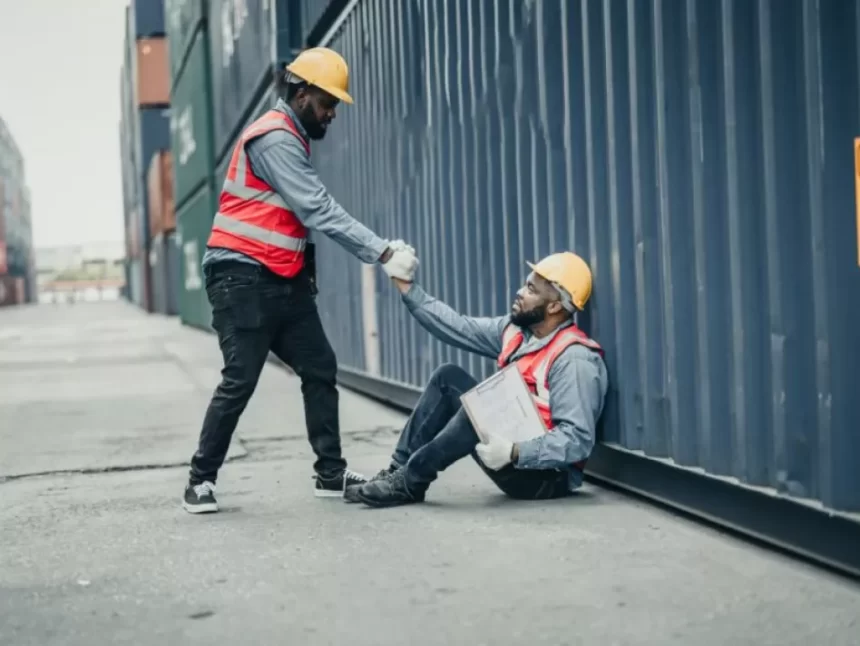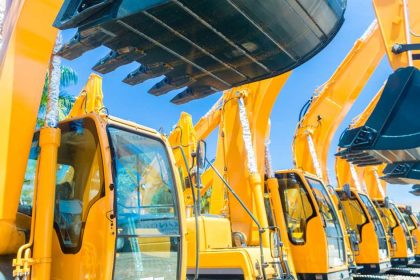Tradies have shown no demolition job is too big for our industry by knocking down more barriers to build better mental health support within the construction sector.
Positive data released as part of Tradie’s National Health Month showed more tradespeople are turning to their mates as pillars of support when feeling down than in the past.
The trend is a U-turn compared to last year, with construction workers digging deep to make mental health a priority fix at home and on-site.
The 2023 Steel Blue “Boot the Blues” showed that 60 per cent of tradies were now more at ease seeking help from their close circles than last year.
Meanwhile, nearly 70 per cent showed the courage to reach out to either friends, family or a doctor to try and boot the blues and get support.
The numbers indicate a growing awareness amongst tradespeople of how important talking to someone is when dealing with mental health challenges.
Construction industry workers have historically shown a higher risk of self-harm than managers and professionals, with technicians and tradies (19 per cent), labourers (36 per cent) and machinery operators (50 per cent) more likely to commit suicide.
Alarmingly, those working in construction are eight times more likely to die from suicide than a workplace accident.
Dr Grant Blashki, Lead Clinical Adviser at Beyond Blue, said a welcomed departure from the traditional “tough guy tradie” stereotype could lead to more blue-collar workers addressing their mental health and physical injuries.
“The importance of initiatives like Steel Blue’s collaboration with Beyond Blue is a real game changer,” he said.
“It opens up the conversation and reminds tradies experiencing mental health problems that they’re not alone, and it’s worth accessing the excellent support out there which can change people’s lives and help them get back on track.”
Experts attribute the optimistic trends to changing societal attitudes towards mental health and their positive impacts on workplace culture.
The introduction of more mental health supports, such as MATES In Constructions suicide prevention and early intervention program to address high suicide rates in the construction industry, has provided many workers with the mental health education they didn’t know they needed.
“MATES in Construction is an industry-led approach to an industry problem,” MATES CEO Chris Lockwood told Build-it.
“Early intervention is the key, so our program has been designed to teach workers what to look out for and the best ways to reach out and offer a helping hand to someone they’re concerned about.”
“Training workers in the workplace to improve mental health and suicide prevention literacy, increase help-seeking and help-offering and engage the workforce in creating a mentally healthy workplace.”
Jason Banks, spokesperson for blue-collar counselling service TIACS, told Build-it there were options available for tradies who were hesitant about face-to-face support, such as their free phone and text counselling service.
“We all know work and life as a tradie can be a grind sometimes, and often challenges can build up,” he said.
“It’s best to reach out to one of your mates for a chat or use a service like TIACS to get through those obstacles as soon as things feel like they are becoming too much.”
“Think about a mental health support service as a personal trainer for your mental health; they are there to give you a few extra tools in your tool belt.”
The ‘Boot the Blues’ for Beyond Blue fundraising campaign aims to raise awareness of mental health among resource, construction, agriculture, and trade workers.
Founding Director of Steel Blue Ross Fitzgerald said he was encouraged by the results found by the survey.
“The knock-on effects of poor mental health among tradies can’t be understated in economic, health and social terms,” he said.
Compared to the previous year, the survey indicated overall positive shifts in respondents’ attitudes and behaviours towards mental health:
- 63% felt they knew how to protect their mental health during times of stress
- 72% engaged in hobbies that helped them relax
- 55% stated they would reach out for help if experiencing distress
- 60% reported feeling comfortable discussing their struggles with friends and family
- 60% expressed a sense of comfort in seeking professional assistance
- 84% disagreed with the notion that depression is a sign of weakness
Every year, more than 800,000 people die by suicide globally – that is one person every 40 seconds.
Nine people die by suicide every day in Australia.
If you or someone you know is doing it tough, the MATES Helpline is available 24/7 on 1300 642 111.
Meanwhile, TIACS offers a free phone and text counselling service by contacting 0488 846 988.
In an emergency, always remember to dial 000.







